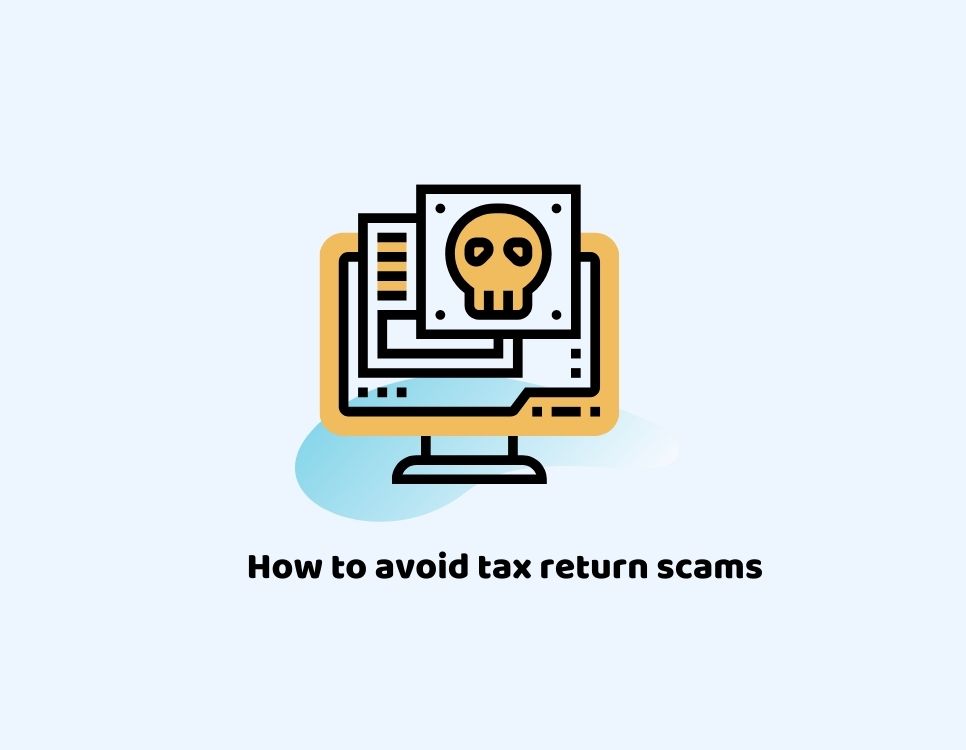
04/02/2021Personal Tax , Tax Issues , Tax Saving Tips
The National Fraud Intelligence Bureau reported that coronavirus-related scams skyrocketed 400% in the first month of lockdown in the UK in March 2020. Over 100 cases were recorded, with losses totalling £970,000. The scams continued over the course of the year. At the beginning of 2021, fraudsters are now targeting citizens who are filing personal taxes. HM Revenue and Customs (HMRC) reported copycat HMRC websites, phishing scams, and fake text messages sent to trick people into disclosing account information and personal details. In this article, we will cover the methods of tax return scams, how tax return scams work, how to spot it and what to do if you have been scammed.
How Tax Return Scams Work
Tax return scams usually start in the same way. A fraudster will communicate with you over landline, text message, or email, claiming to be from the HMRC. They will say that you can claim financial help or that you’re due a tax refund. Sophisticated fraudsters even reference your Government Gateway Account and create email graphics that look official.
You will then be led to a portal that requires you to enter all your details, bank account information, and other data, including your Unique Taxpayer Reference Number (UTR). If successful, the fraudsters will be able to claim your refund or even get into your bank account.
Fraudsters are leveraging technology in increasingly creative ways, so you need to be vigilant whenever you receive text messages or emails from seemingly official channels. It’s best to keep from clicking any of them, even if they’re simple promo texts from your favourite retail store! Simply accessing a suspicious link may make your phone or computer vulnerable to malware or viruses.
How to Spot a Tax Return Scam
For tax return scams, in particular, spotting them is simple: HMRC does not contact customers through email or text. It always sends all tax return communications via post.
If you are employed and don’t usually fill in your tax return, any HMRC communication is a scam. If you do fill in a Self Assessment Tax Return form or VAT returns, HMRC will communicate with you via email. It’s important to always check that the email is sent from an email address ending in hmrc.gov.uk.
HMRC will never ask for your bank account information, passwords, or PINs. It’s best never to enter any of this information in an online form that’s in any way suspicious.
If in doubt, you can get in touch with HMRC to check if the communication is genuine. You can forward suspicious emails to [email protected] and texts to 60599.
What to Do If You’ve Been Scammed
If you think you’ve been the victim of a scam, check your bank accounts immediately and see if you’ve lost any money. Contact your bank and ask for advice on how to protect your accounts.
You may have to change your passwords, create a new account, or cancel your card. Check your accounts with HMRC as well, and let them talk you through how you can retrieve lost money.
Conclusion
Fraudsters continuously come up with new and creative ways to scam people into giving away personal information. It’s more important than ever to be vigilant and to protect yourself from these attempts. Double-check email addresses and website URLs before clicking links and entering any personal details. HMRC sends all tax refund communication via post, so report any suspicious texts or emails to their official channels.
Are you looking for affordable accounting services in Croydon to help you with your tax filing and avoid tax return scams? CruseBurke provides affordable accounting and taxation services to individuals and small businesses. We have over 100 years of combined experience in providing a broad range of services, such as self-assessment tax returns, corporate tax, auditing, and more. Contact us today!

